Pacific Explorer Marquee Theatre | Port Moresby, Papua New Guinea
12:25 P.M. PGT
Thank you, Scott. And thank you all for that warm welcome. Prime Minister O’Neill, Chairman Taureka, representatives from across the region, leaders of the business community, and to all our distinguished guests, it’s my honor to join you here at the “premier economic forum” in the Indo-Pacific: the 2018 APEC CEO Summit. Thank you all for being here. (Applause.)
At this forum last year, President Donald Trump laid out the United States’ vision for a free and open Indo-Pacific, where, in his words, “sovereign and independent nations, with diverse cultures and many different dreams, [could] prosper side-by-side, and thrive in freedom and peace.”
And President Trump personally sent me here today, one year later, to report on our progress in achieving that vision. Across the board, we’ve taken decisive action, and the United States’ commitment to the Indo-Pacific has never been stronger. (Applause.)
The Indo-Pacific encompasses more than half the Earth’s surface and more than half the human family. Two-thirds of global trade happens here, and its economic potential and strategic importance are only growing by the day.
To unlock the region’s boundless opportunities, last year, President Trump promised to pursue “robust trade relationships rooted in the principles of fairness and reciprocity.” And from South Korea to Mexico to Canada, we’ve forged new and historic trade deals, and more are on the way.
He promised to give the nations of the Indo-Pacific a better option to support infrastructure projects, by “reforming our development finance institutions.” And today the United States has more than doubled our financing capacity to $60 billion.
The President also promised to build stronger partnerships to ensure our shared security. And this year, we’ve provided more foreign military financing to the Indo-Pacific than the previous three years combined.
The President promised to “confront grave threats to security.” And we’ve stood with our allies and partners in the region to defend their sovereignty, root out terrorists, and bring North Korea to the negotiating table.
And last year, at this very forum, President Trumppromised to “always put America first” and get the American economy rolling again. And our actions have led to growth in our country that’s benefitting countries all across the Indo-Pacific as well.
Under President Trump’s leadership, in the United States, we’ve cut regulations at a record pace. We’ve unleashed American energy, and we’ve enacted the largest tax cuts and tax reform in American history.
The results have been remarkable — 4.5 million new jobs, the lowest unemployment rate in half a century in our country, and more Americans are working today than ever before in American history. We’re on track to reach the fastest growth in nearly 15 years. And after 10 years, the United States is once again recognized as the most competitive economy in the world.
And American growth, as I said, is driving global prosperity right here in the Indo-Pacific. Over the past two years, American businesses have announced more than 1,500 new projects and more than $61 billion in new investments across this region. The United States’ total investment in the Indo-Pacific is now more than $1.4 trillion — more than China’s, Japan’s, and South Korea’s combined. And American investment in the Indo-Pacific will only continue to rise.
America’s renewed economic growth is vital to our vision for the Indo-Pacific, where strong and independent nations grow stronger still. And they grow stronger still together. And that’s what America has always sought, going back to our nation’s earliest days.
Our history in the Indo-Pacific is a story of trade and commerce — starting more than two centuries ago with the Empress of China, a ship that left New York and traveled across the Indian Ocean and into the Pacific, reaching Canton, where it traded American ginseng for Chinese tea and porcelain.
Throughout our history, it’s been a story of friendship and partnership — of bonds built over time with every nation — east, north, west, and south — including five of our most cherished treaty alliances.
It’s a story of strength and a story of sacrifice — of our nation’s bravest standing shoulder-to-shoulder with many of yours to push back the tides of imperialism and communism, from the Coral Sea to the Incheon Landing to countless hills and beaches and jungles between.
And it’s a story of progress in the Indo-Pacific — of our nation working hand-in-hand with all of yours to uplift our citizens and usher in a new era of opportunity for all. Across this region, hundreds of millions of people have climbed out of poverty; innovation and entrepreneurship have accelerated; dictatorships have fallen and democracies have risen in their place; and citizens have stood tall to reclaim futures and reassert their independence, from Malaysia to the Maldives.
As we gather here at APEC, we are writing the newest chapter even now of our progress, and we’re guided by our vision.
As President Trump described last year, the United States seeks a free Indo-Pacific where independent nations boldly pursue their own interests, respecting their neighbors as equals; where societies, beliefs, and traditions flourish side-by-side; where individuals exercise their God-given liberties to pursue their dreams and chart their destinies.
The United States also seeks an open Indo-Pacific, where commerce and culture flow freely; where the seas and the skies are accessible to all with peaceful aims; where disputes are resolved without conflict or coercion; where nations trade with one another, gathering as much as they give; and where we embrace a future of endless possibility for all who call this region home.
This vision, I know, is shared by the vast majority of nations in the Indo-Pacific. It excludes no nation, and from the western shores of Latin America to the furthest reaches of the Indian Ocean, the United States has extended a hand in a spirit of friendship and partnership, seeking collaboration, not control. In all that we do, we are working tirelessly to advance our shared prosperity, strengthen our shared security, and uphold our shared principles.
Trade, of course, is central to our interests in the region. And as the President said last year, the United States will, in his words, “make bilateral trade agreements with any Indo-Pacific nation that wants to be our partner and that will abide by the principles of fair and reciprocal trade.”
Beyond the deals that I’ve already mentioned, the United States will soon enter negotiations on a trade agreement with the world’s third largest economy, in Japan. I’m also pleased to report that America is already in discussions for another trade deal with yet another APEC member — and we’re just getting started on that.
And while we’ve been forging new deals, we’ve also stood up to countries that use unfair trade practices. Just look at the stand that President Trump has taken on our trading relationship with China.
As President Trump said just a few hours ago in the Oval Office, we have “great respect for President Xi… [and] great respect for China.” But, in the President’s words, “China has taken advantage of the United States for many, many years.” And those days are over.
As the President has added, China has “tremendous barriers”; they have “tremendous tariffs”; and, as we all know, their country engages in quotas, forced technology transfer, intellectual property theft, industrial subsidies on an unprecedented scale. Such actions have actually contributed to a $375 billion good trades deficit with the United States last year alone. But as the President said today, “that’s all changed now.”
We’ve taken decisive action to address our trade imbalance with China. We’ve put tariffs on $250 billion in Chinese goods and we could more than double that number. But we hope for better. The United States though will not change course until China changes its ways.
Beyond trade, the United States is promoting private investment in the Indo-Pacific as never before. As we stand here today, American companies are hiring and training your workers, holding themselves to the highest standards. They don’t serve a distant capital; they bring benefits directly to your country. And you need look no further than Papua New Guinea for proof of the critical importance and benefits of American investment.
Take one example: ExxonMobil has already invested more than $19 billion in this nation, building more than 450 miles of pipeline — (applause) — and creating more than 2,600 jobs here in Papua New Guinea. (Applause.) And the overwhelming majority of which are local hires. Now ExxonMobil, I’m informed, intends to double the capacity of its plant here in Port Moresby, with another multi-billion dollar investment. And tomorrow, I look forward to joining several of our allies and partners in the region to announce a historic initiative that will transform Papua New Guinea’s future. (Applause.)
But American investment is not just growing here, it’s surging all across the Indo-Pacific. Our companies are constructing power plants in Bangladesh and expanding digital connectivity in Nepal. They’re building solar panels in Vietnam and innovation centers in Singapore, shaping the energy infrastructure in Peru and expanding healthcare services in Chile. And they’re installing and maintaining underwater cables to connect the many nations of the South Pacific to the United States and the wider world.
And America is taking action to spur greater investment in digital connectivity especially. This week, we created the U.S.-ASEAN Smart Cities Partnership to strengthen the cyber economy of Southeast Asia and bring American business expertise to bear on the region’s digital needs. As we pursue similar projects in the days ahead, I can assure you we will continue to hold fast to our conviction that a free and open Indo-Pacific also deserves a free and open Internet. (Applause.)
With this renewed commitment to development financing, we’re also making infrastructure in the Indo-Pacific a top priority — from roads to railways, ports to pipelines, airports to data-lines. And the United States has a principled approach that stands in stark contrast to other some nations.
As we speak, as we’re all aware, some are offering infrastructure loans to governments across the Indo-Pacific and the wider world. Yet the terms of those loans are often opaque at best. Projects they support are often unsustainable and of poor quality. And too often, they come with strings attached and lead to staggering debt. (Applause.)
Not long after our War of Independence, my nation’s first President, George Washington, warned of the dangers that could undermine all that we had achieved: debt and foreign interference. And so today, let me say to all the nations across this wider region, and the world: Do not accept foreign debt that could compromise your sovereignty. Protect your interests. Preserve your independence. And, just like America, always put your country first. (Applause.)
Know that the United States offers a better option. We don’t drown our partners in a sea of debt. We don’t coerce or compromise your independence. The United States deals openly, fairly. We do not offer a constricting belt or a one-way road. When you partner with us, we partner with you, and we all prosper.
While our ongoing investment in prosperity across this region has been immense, the United States has also continued to stand with likeminded nations to ensure security and peace across the Indo-Pacific.
You know, it’s remarkable to think that when the President spoke before you last year, the greatest threat to the Indo-Pacific was the regime in North Korea. We all remember those days: nuclear tests, missiles flying over Japan, a war of words and provocations.
Faced with this threat, the United States rallied the world to enact an unprecedented pressure campaign. And as the world witnessed at President Trump’s historic summit with Chairman Kim in Singapore in June, our collective resolve has borne results. No more tests. No more missiles. Our hostages are home. And the hope of peace on the Korean Peninsula is alive once more.
As we speak, the United States is making plans for another summit between President Trump and Chairman Kim. All nations must continue to stand together, enforce all U.N. Security Council resolutions, and hold North Korea to the commitments it made in the Singapore Declaration — and so will we.
We must be vigilant and resolved to achieve the final, fully verified denuclearization of North Korea. We owe it to our children to secure a lasting peace for the Korean people, we owe it to the Indo-Pacific, and we owe it to the world. (Applause.)
And as President Trump made clear last year, the United States will also remain vigilant against other threats facing this region — criminal cartels, drug smugglers, human traffickers, and cyber criminals. To that end, we will continue to expand our military, intelligence, and law enforcement collaboration across the region.
We will continue to work with our allies and partners to defeat the menace of extremism. After ISIS-inspired terrorists went on a rampage in the Philippines last year, the United States stood with our ally to liberate Marawi City. We will never allow radical Islamic terrorists to establish a foothold in the Indo-Pacific.
We will continue to stand with our allies as well and our partners to protect our borders on land and sea, and in the digital domain. This week, it was my privilege to announce a new partnership between the United States and Singapore to bolster digital defenses for the 10 nations of ASEAN.
We’re also forging new and renewed security partnerships, as shown by our recent trilateral naval exercises with India and Japan. And today, it’s my privilege to announce that the United States will partner with Papua New Guinea and Australia on their joint initiative at Lombrum Naval Base on Manus Island. (Applause.) We will work with these nations to protect sovereignty and maritime rights of the Pacific Islands as well.
And you can be confident: The United States of America will continue to uphold the freedom of the seas and the skies, which are so essential to our prosperity. We will continue to fly and sail wherever international law allows and our national interests demand; harassment will only strengthen our resolve. We will not change course. And we will continue to support efforts within ASEAN to adopt a meaningful and binding code of conduct that respects the rights of all nations, including the freedom of navigation, in the South China Sea. (Applause.)
Finally, as President Trump made clear last year, we will also “uphold the principles that have benefitted us all” through the generations. The United States is working as we speak to promote civil society, the rule of law, and transparent and accountable government across the region. These are the building blocks of progress and they are the bulwarks of independence.
Today, it’s also my privilege to announce our new Indo-Pacific Transparency Initiative. In conjunction with more than $400 million in American funding, this program will help empower the region’s citizens, combat corruption, and strengthen sovereignty. And it is our honor to initiate this program. (Applause.)
All the people of the Indo-Pacific deserve to live in flourishing homelands. And governments that are accountable to their people make better partners for all of us, including the United States.
As the President said at APEC last November, the United States will always stand without apology for individual rights. Since the American founding, our nation has embraced the principle that all are created equal and endowed by our Creator with certain inalienable rights. Americans believe in the freedom of speech, private property, and the freedom of religion. And we will continue to support those who aspire to these freedoms across the Indo-Pacific and the world.
We do this because it’s just. We also do this because it’s in all of our interests. The truth is, governments that deny rights to their own people too often violate the rights of their neighbors. Authoritarianism and aggression have no place in the Indo-Pacific. (Applause.)
In the days ahead, the United States will continue to put America first, as all the countries represented here are duty-bound to put the interests of your people first. But I hope by my remarks today and the President’s leadership in the last year that it’s clear that America first does not mean America alone. We know that our prosperity, our security, and our future are intertwined with yours.
The President sent me here to demonstrate our continued commitment not just to all of you and to the region, but our continued commitment to APEC and its mission of promoting open markets; free, fair, and reciprocal trade. Discussions this week on digital trade and services are important for the region’s continued rise, and we’re proud to support them. As I told the nations’ leaders of ASEAN earlier this week, ASEAN is central to our Indo-Pacific vision. And we are proud of our partnership with ASEAN — past, present, and future. (Applause.)
The United States is drawing closer to our allies every day. We’re working with Japan to invest $10 billion in the region’s energy infrastructure, and we’re now partnering with Japan and Australia to support a vast array of private development projects across the Indo-Pacific.
As the world’s oldest democracy, the United States also feels a kinship with the world’s largest democracy, India. And our strategic partnership with India is a key component of our vision. As we speak, we’re increasing our security collaboration with our major defense partner. We’re strengthening our trade relationship with India, and promoting our shared values across the region.
We’ve proven our commitment to the Pacific Islands as never before by investing in infrastructure, cooperating on fisheries, and signing new maritime treaties. Even the smallest nations are equal stakeholders in a free and open Indo-Pacific, and we are proud to stand and partner with all of them. (Applause.)
Now as I stand before this distinguished group of leaders in business and public life, we are aware of the concern that U.S.-China competition is felt among many of you. There’s a concern that the competition will hurt the region economically or that South China Sea developments will increase military tension.
So let me be clear: The United States seeks a better relationship with China, based on fairness, reciprocity, and respect for sovereignty.
The difficulties that the United States and other nations face with Beijing have been well documented by our administration. China knows where we stand. But as President Trump has said, in his words, we want to “strengthen the relationship between our two countries and improve the lives of our citizens.”
And as the President prepares to meet with President Xi at the G-20 Summit in Argentina, we believe that progress could be made — progress could be made between our two nations, even as the United States remains in a strong position.
And let me be clear again: China has an honored place in our vision of a free and open Indo-Pacific if it chooses to respect its neighbors’ sovereignty; embrace free, fair, and reciprocal trade; uphold human rights and freedom. The American people want nothing more; the Chinese people and the entire Indo-Pacific deserve nothing less.
Today, as in ages past, the United States has offered our hand to the Indo-Pacific in partnership. Our commitment is steadfast and enduring. Our intentions are proved by more than two centuries of good will. And our past is but a prelude to a future that we will write together, in cooperation and competition, as honest partners and faithful friends.
As an Indo-Pacific nation, the United States is proud to be a part of this great story, and we’ll continue to write new chapters, with resolve and with faith — faith in the people who call this vast expanse home, and the boundless capacity of every individual to achieve their dreams; faith in our most cherished principles, and in the vision that we share for this region of the world. And lastly, I believe that we go with faith that, as we labor for a free and open Indo-Pacific, we do not work alone.
Not far from here, in the Parliament of Papua New Guinea, I am told, sits one of this country’s national treasures — a King James Bible, more than 400 years old. (Applause.) Before it made its way here, it passed through my home state of Indiana. It calls to mind the rich and diverse traditions of culture and faith that characterize this vast region of the world. And on that foundation, I believe we can be confident that our vision of a free and open Indo-Pacific will prevail. For, as it says in that old book, “where the spirit of the Lord is, there is liberty.” (Applause.)
So thank you all for the honor of addressing you today and for participating in this important gathering. We will forge a future better and brighter than anything we could ask or imagine. We will forge a future where nations large and small can prosper and thrive across the Indo-Pacific. And I believe with all my heart, we will forge that future together.
So on behalf of President Trump and the American people, thank you for your presence here today. God bless all the nations and people of the Indo-Pacific, and God bless the United States of America. (Applause.)
Source: https://www.whitehouse.gov/briefings-statements/remarks-vice-president-pence-2018-apec-ceo-summit-port-moresby-papua-new-guinea/
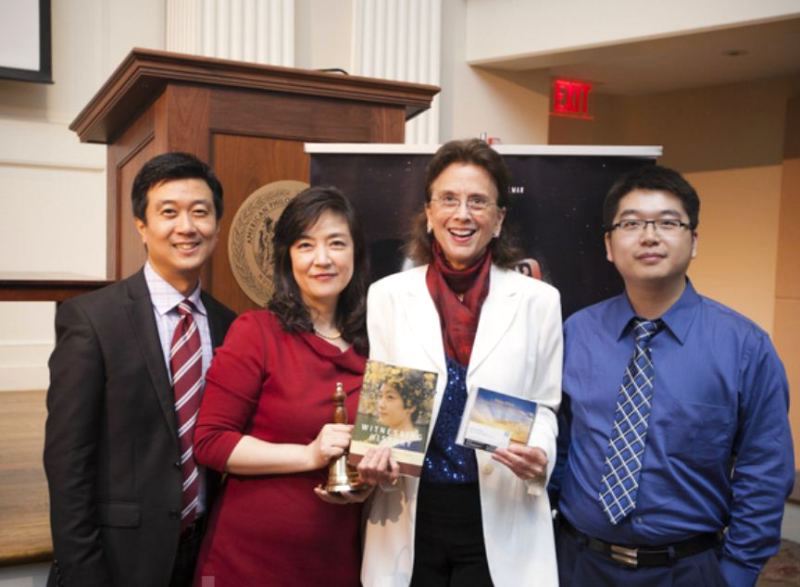
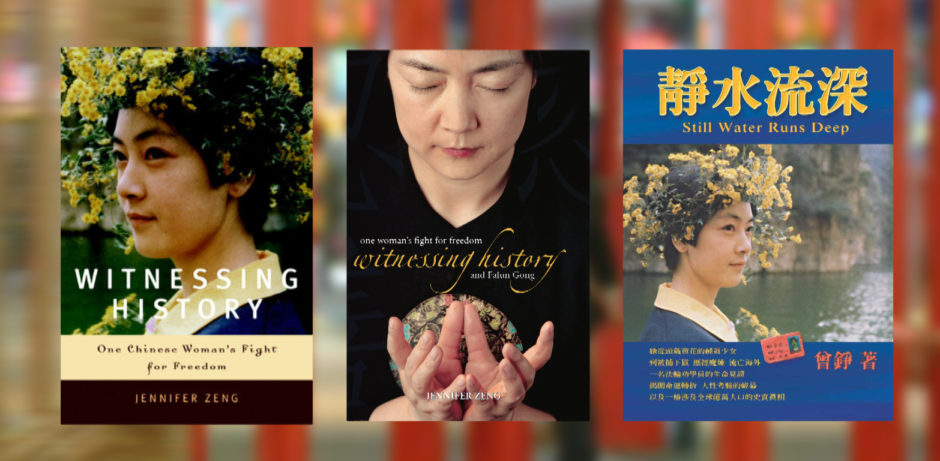
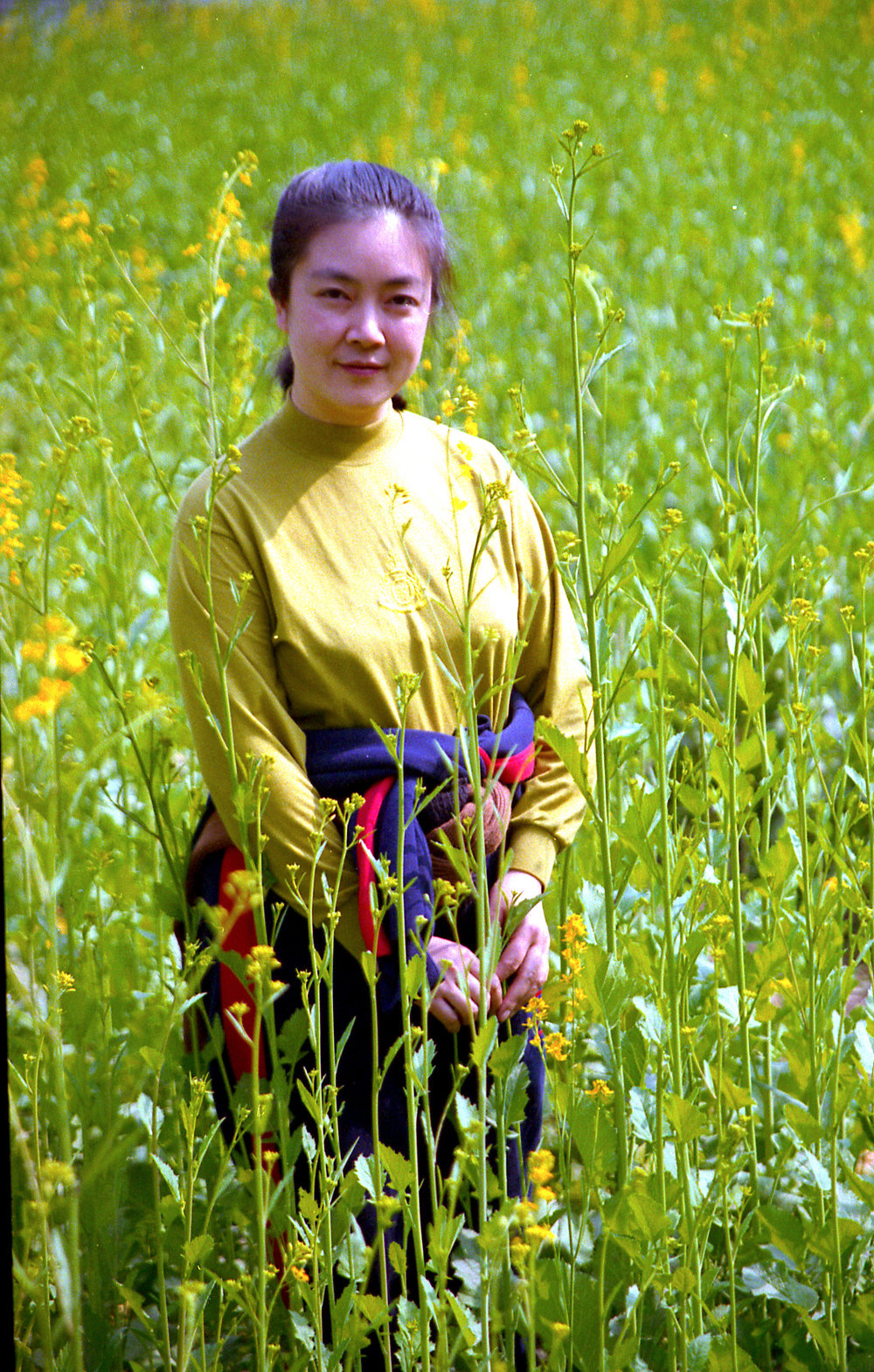
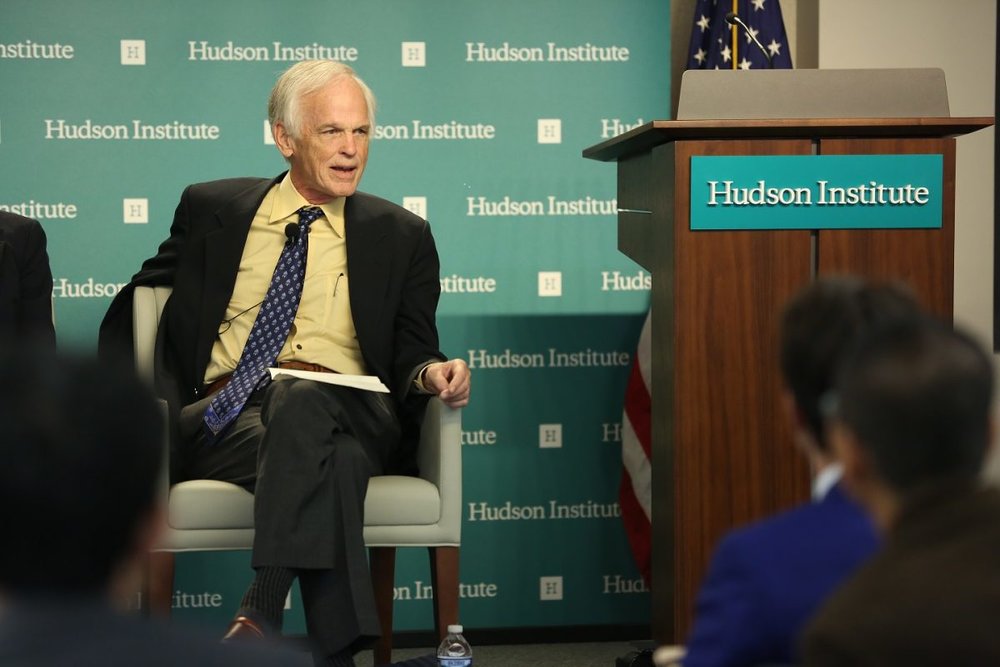
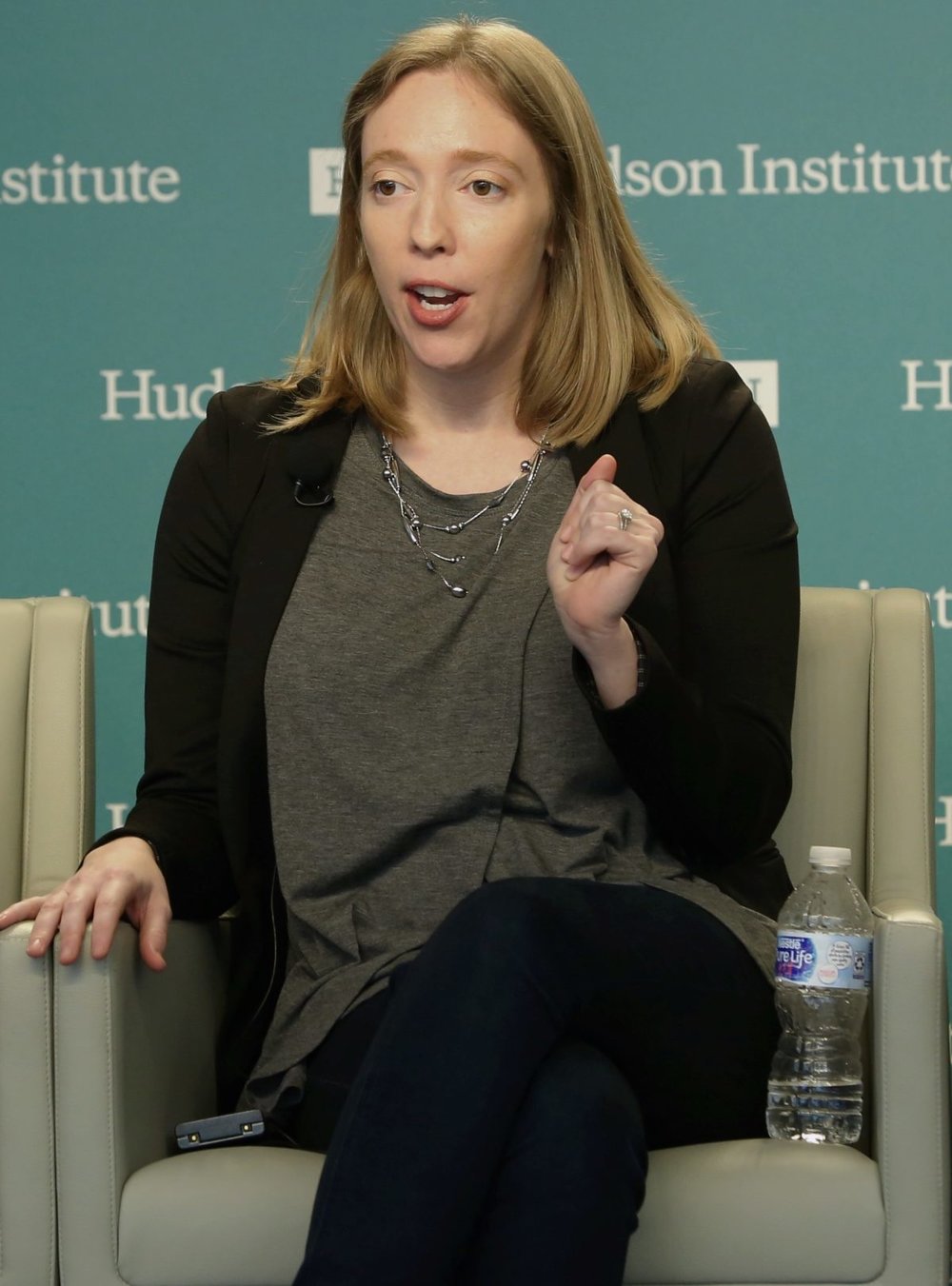
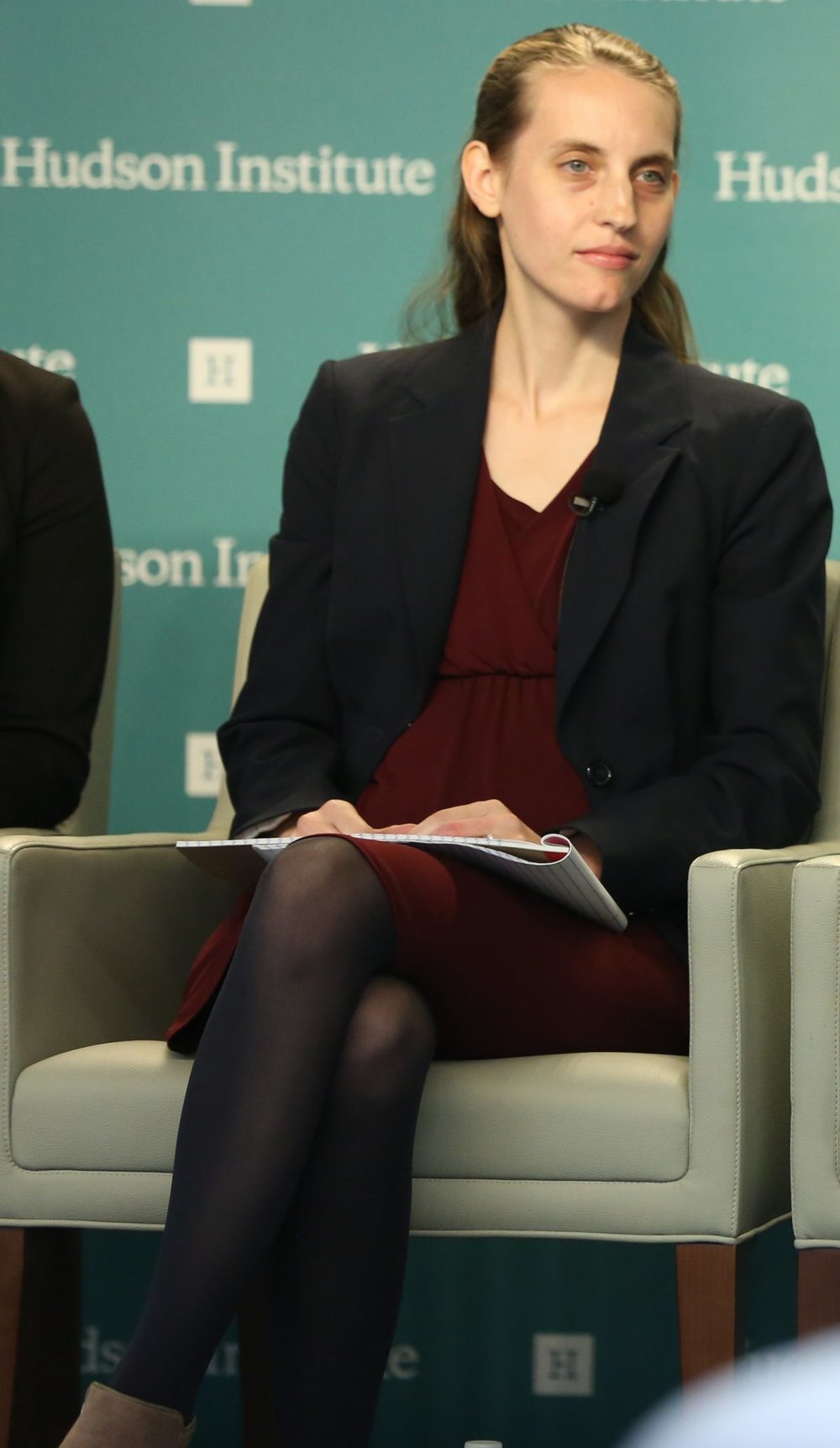

評余杰《以真話來維權》
看到余杰的《以真話來維權》後,我發表了八個多月前寫給他的信(注1)。信裡我談到在甚麼樣的情況下,即便是「十足真金」的真話,也會傷人。我想委婉地向他表達,除了「講真話」外,一個人還應該能夠對自己講出的話負責任。我發現,他似乎不太考慮這一點。
我當時沒有跟他講,其實他還有說了假話卻不自知的情形。在我的「婦人之仁」中,我一直怕他難為情。我們是校友,我又「癡長幾歲」,去年他到澳洲開作家會時,我應獨立中文筆會蔡楚先生的吩咐,盡過一點地主之誼,如安排他與悉尼和墨爾本幾十名作家的會面(後來他在其中發展了不少會員),一次公眾演講,在會議期間為他做翻譯,替他聯繫媒體採訪,等等。因為有過這點「私交」,我莫名其妙地覺得我對他負有甚麼責任,因此才費心費力寫那封長信。
現在,我不得不將他講了假話卻不自知的例子說出。我希望,如果這能讓他有所觸動的話,他能藉此反省一下:是否還有更多的以為是講真話,卻講了假話甚至蠢話的情形?「講真話」這三個字,是否還有不為我知的境界和含義?
这個例子發生在去年十一月在澳洲召开的亚太地区作家会上。我在會上做了題為《論言論自由、新聞管制及中國人民的對策》的發言,當時稿是用英文寫的,發言時也是用英文念的,因為工作語言是英文。
大會結束後,我把發言稿翻成中文,於05年11月12日分別發表在大紀元(注2)、博訊網(注3),以及獨立中文筆會社區。
五天後的11月17日,余杰發表了他的澳洲記行《若為自由故,天涯若比鄰》(注4),提到我的發言時,他說:「曾錚則講述了她的自傳《靜水流深》的寫作過程——這是一個法輪功學員在大陸遭到殘酷迫害的故事。」
看到这里,我驚詫了。我沒有講過半句《靜水流深》的寫作過程,我講的是中國的言論自由和新聞管制,裡面提到法輪功和《九評》而已。如果余杰因為英文不好,當時沒聽懂,可是我早已在五天前發表了中文稿啊!
也許,這是一件太小的事情,小到有人會覺得不值一提。但在我的「婦人之見」中,從此對余杰的治學態度打了個大大的問號。我看一個人,向來喜歡以小見大。大話人人會講,不經意的小節,往往更能反映一個人的品質;而一個人的見識高低,又取決於他的人品。人品不高,見識必低。
余杰似乎一直將「說真話」放在僅次於上帝的重要位置。我願意相信,他主觀上,可能確實想講真話,他也以為自己在講真話。然而,由於他的無知、不求甚解,以及被膨脹的自我所矇蔽的心智,他說了假話卻不自知。更重要的是,自我過分膨脹後,一個人會失去起碼的善念和同情心。
他在《以真話來維權》中提到他比較相信吳弘達對中共活摘法輪功學員器官的指控的結論時,也沒有給出任何論據和論證過程,唯一的原因/依據是「我認為」。「我認為」能夠成為判斷一個這麼嚴重的指控是真是假的依據嗎?誰都知道不能,余杰為甚麼會認為能呢?這也基於他對自我的一個判斷,也就是說,他可能下意識覺得,我余杰認為,這還不夠嗎?
對於吳弘達的文章,力虹先生和老久已經撰文分析得很透徹(注5),我就不說甚麼了。
我還想問余杰的是,他說法輪功「偽造」退黨數據,有何根據?他知道「三退」數字怎麼來的嗎?他有「偽造」的證據嗎?「偽造」發生在哪個環節?誰在進行「偽造」?法輪功學員揭露中共活摘器官的罪行時,人人都在問他們要「證據」,怎麼當有人說法輪功「偽造」這、「偽造」那時,就不需要拿出「證據」呢?
相反,加拿大前國會議員大衛.喬高和人權律師大衛.麥塔斯關於中共活摘法輪功學員器官的報告(注6)是值得一讀的。它所引用的東西,都告訴你出自何處,對一個說法是否成立,除了看有甚麼能證實它外,也看有甚麼能反證(證偽)它,經過對十八類有可能成為證據和反證的因素的分析,最後才得出措詞十分嚴謹的結論。
所謂「余王排郭」發生後,看到網上許多「聲討」余杰的文章,我曾時不時去設想:他現在的感覺如何?今年二月,他又來過澳洲,但我未與之見面。為此,我有些愧疚,有時甚至胡思亂想道:如果他第二次來澳時我對他的態度有所不同,他是否不會走到今天這步?
我多次想給他寫信,可又覺得:說甚麼呢?安慰他?他需要嗎?建議他反省?他真要反省的話,用得著我說嗎?我也想像不出他的心情,正如他想像不出我的心情一樣。
看到《以真話來維權》中的這段話,我終於瞭解他的心情了:「對於維權活動中某些熱衷於權謀和權力的人士,我選擇不跟他們做朋友,不與他們一起出現在公共場合,這亦是我的權利所在。」
——看來,他已經沒有底氣了,卻又沒有承認錯誤的勇氣。於是,「說真話」在這時候,成了一個被寵壞的孩子,跟家長哭著喊著要得到的一個玩具。
2006-7-30初稿
2006-8-3修改
注1:曾錚致余杰:
https://www.jenniferzengblog.com/home/2018/11/17/to-yu-jie
注2:曾錚:論言論自由、新聞管制及中國人民的對策:
http://www.epochtimes.com/gb/5/11/12/n1117653.htm
注3:曾錚:論言論自由、新聞管制及中國人民的對策:
https://blog.boxun.com/hero/zengz/73_1.shtml
注4:余杰:若為自由故,天涯若比鄰:http://www.epochtimes.com/gb/5/11/24/n1130708.htm
注5:力虹:吳弘達他想幹甚麼?(一):http://www.epochtimes.com/gb/6/7/19/n1391411.htm
力虹:吳弘達他想幹甚麼?(二): http://www.dajiyuan.com/gb/6/7/20/n1392165.htm
力虹:吳弘達他想幹甚麼?(三): http://www.epochtimes.com/gb/6/7/21/n1393848.htm
老久:吳弘達為甚麼要欺騙美國議員?(上) :http://epochtimes.com/gb/6/7/25/n1397715.htm
老久:吳弘達為甚麼要欺騙美國議員?(中) :http://www.epochtimes.com/gb/6/7/25/n1397808.htm
老久:吳弘達為甚麼要欺騙美國議員?(下) :http://www.epochtimes.com/gb/6/7/25/n1397811.htm
注6:大衛.喬高、大衛.麥塔斯:關於調查指控中共摘取法輪功學員器官的報告(一)、(二)、(三)、(四):http://www.renminbao.com/rmb/articles/2006/7/7/40963.html ,
http://www.renminbao.com/rmb/articles/2006/7/8/40975.html ,
http://www.renminbao.com/rmb/articles/2006/7/9/40989.html ,
http://www.renminbao.com/rmb/articles/20